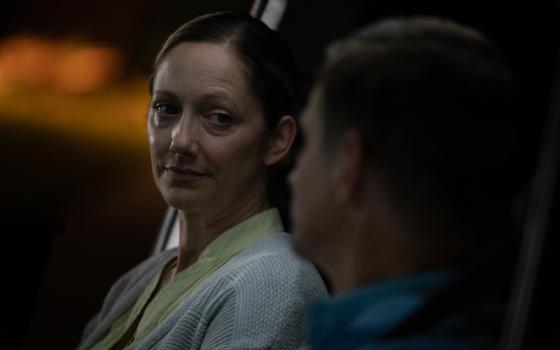
CAPE TOWN, SOUTH AFRICA -- Packages of basic groceries sent from South Africa are a lifeline for many Zimbabweans, said a Catholic journalist exiled from Zimbabwe who now supports his extended family from Cape Town.
“All my free time is spent organizing packages for my elderly mother and father and other family,” said Clutton Patsika, 37, the youngest of seven, who fled to South Africa in late 2006 when he felt his life was in danger because he was a fierce critic of Zimbabwean President Robert Mugabe.
“Buying things to send and then getting the package home costs me about 4,000 [South African] rand [about US$400] a time and I save to be able to do this every two months,” Patsika told Catholic News Service Dec. 20 at the apartment where he lives with his wife and daughters, ages 8 and 3, as well as his wife’s sister and her 5-year-old son.
His 82-year-old mother and 84-year-old father live in a village about 150 miles east of the Zimbabwean capital Harare.
“After Christmas I will pay someone in Cape Town to take the parcel to Harare and then someone else who will buy fuel to take the food to their village,” he said.
Patsika mostly sends canned food, matches, candles, cooking oil and peanut butter to Zimbabwe, a country with chronic food and fuel shortages and where prices double every 24 hours. Aid agencies say that more than 5 million Zimbabweans face starvation.
“I’m always worrying about my family back home. If I buy fried chicken as a treat for my family in Cape Town I can’t really enjoy it, thinking about my parents who may not have had a meal that day,” he said.
“What disappoints me most is that there is always something missing from the parcels by the time my family gets them,” Patsika said. “People have become dishonest but I have come to accept that this is the reality” in a country “of hungry people” with the world’s highest inflation rate, he said.
Patsika, who works as a copyeditor at a Catholic newspaper and takes on part-time work on Sundays to meet his financial obligations, travels to Johannesburg frequently to organize his remittances. Johannesburg, South Africa’s economic hub, is 610 miles from Harare, which cuts the distance between Cape Town and Zimbabwe’s capital by more than half.
Patsika used to work for the Daily News, Zimbabwe’s only independent daily newspaper, before it was closed by police in 2003 after a court ruling that it was operating illegally.
His brother Moses, a supporter of the opposition Movement for Democratic Change who lived near Harare, died in November. “No official explanation was given for his death but we think he was poisoned for political reasons,” Patsika said.
Human-rights groups have said that since March elections, which Mugabe lost, opposition supporters have been the targets of brutal state-sponsored violence that left more than 80 dead and 200,000 displaced.
“I am now responsible for my brother’s seven children, which would not be a problem if the situation was normal and I was living in Zimbabwe,” Patsika said.
He has bought school uniforms for the children, who live with their unemployed mother, but worries that, with the political and economic crisis, the country’s schools will not open in January at the start of the school year.
Those living farther away, in the United Kingdom, the United States and Australia, mostly use Web sites such as www.zimproducts.com to feed their families in Zimbabwe.
Zimbabwe, a former regional breadbasket that invested strongly in education, “has wasted that investment as everyone with skills and education has left the country,” Patsika said.
“There’s barely anyone left in the country who can think, which is exactly what the Mugabe regime wants,” he said. “People are always asking me why Zimbabweans don’t help themselves to get out of this crisis and the answer, I think, is that all of us who could make a difference have had to leave the country to survive.”
Patsika said he will return to Zimbabwe when the regime is ousted.
“I do have hope for Zimbabwe,” he said. “With a change of government, we could get back on our feet.”
National Catholic Reporter January 9, 2009

